Inside: Alzheimer’s disease is devastating for people and their families. But music can help bring back memories and improve cognitive function. Here are 5 ways music and Alzheimer’s can alter this terrible disease.
Music and Alzheimer’s
Alzheimer’s is a terrible disease. When a person loses their memory, they lose an important chunk of their life. People everywhere are looking for ways to avoid this disease—doing crossword puzzles, brainteasers, and other challenging games that daily exercise the brain.
Years ago, I started following the research of David Snowdon, Ph.D. He was doing a revolutionary study called the “Nun Study,” which included 678 Catholic sisters ranging in age from 75-106. This long-term study helped thousands of people better understand aging and Alzheimer’s disease.
The fascinating part of this study is the nuns agreed to donate their brains to science upon death. Dr. Snowdon found that some of the sisters’ brains had lesions associated with Alzheimer’s but did not exhibit any of the symptoms of the disease during their lives. He called them “escapees.”
He found that those sisters who were engaged in different activities managed to escape Alzheimer’s disease and age gracefully. Such as:
- biking (physical exercise)
- journaling (stress management)
- learning musical instruments (social engagement, stress management & mental stimulation)
- writing (mental stimulation & stress management)
- exercising (physical exercise & social engagement)
- regular sleep
- healthy diets
Most importantly, Snowdon found that Alzheimer’s disease is NOT an inevitable consequence of aging. You and I can do things to avoid it.
Music and Alzheimer’s Disease
I’m sure you know someone who is suffering from this dreaded disease. It’s not easy for the person nor is it easy for family members and caretakers. But there are things you can do to either prevent memory loss and keep your brain in tip-top shape.
And that something is MUSIC!
Research indicates that music can make an enormous difference in the lives of Alzheimer’s patients. In fact, music can dramatically help patients with dementia and Alzheimer’s with memory and cognitive function.
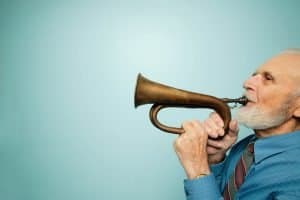
Music helps older people suffering from memory loss by activating the brain in unique ways. And, it’s never too late to learn a musical instrument–even people in their 50’s and 60’s can learn to play a musical instrument and exercise their brains.
Here’s what five studies have found regarding music and Alzheimer’s and how it can help:
Music and Alzheimer’s Disease: How Music Helps
#1: Music Activates the Brain in Unique Ways
Studies have found that music has the ability to activate the brain in unique ways. Think about when you were a child and learned your ABC’s to the Alphabet Song. No matter what age you are today—I’m sure you can rattle off that tune. My dad was still singing that song in perfect pitch when he was 95.
Music affects the brain differently from the spoken word and studies show that music can activate pleasure and reward centers of the brain. Alzheimer’s patients who cannot remember their family members’ names can enjoy music.
One case study described a musician who was well into the course of dementia and could still learn new songs.
It may be due to the fact that music activates MANY different parts of the brain and perhaps the areas it does activate, is not affected by Alzheimer’s.
Suggestion:
Sing every day. Sing songs you learned as a child. Take singing lessons. Exercise your brain through music.
#2: Music Can Be Used to Improve Memory in Alzheimer’s Patients
Music stimulates parts of the brain that enhances the memory of Alzheimer’s and dementia patients. Various studies indicate that music can be used to improve memory in patients with Alzheimer’s disease.
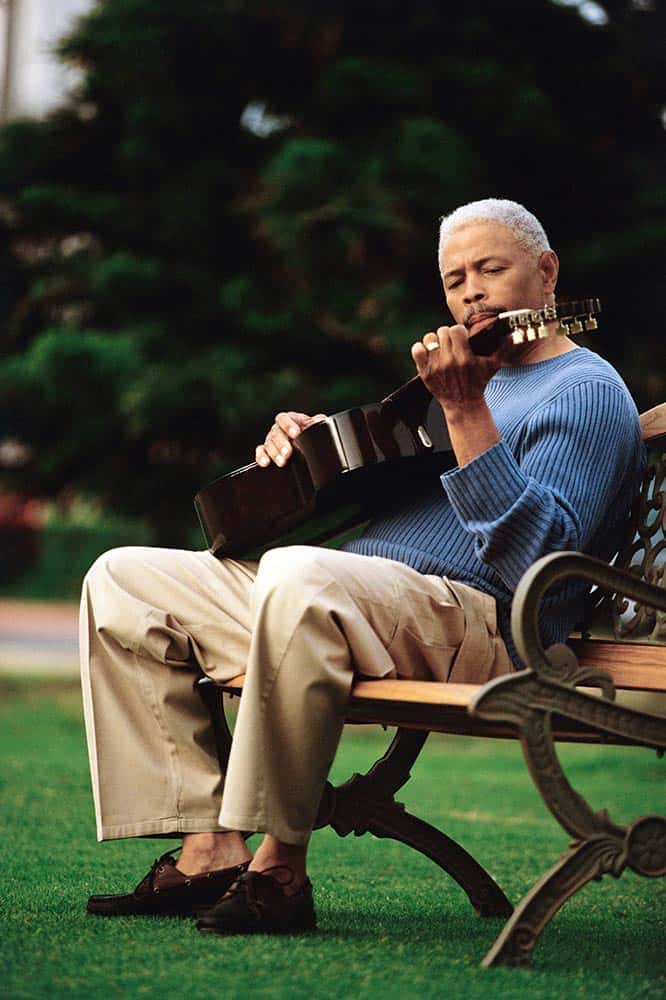
Music stimulates the areas of the brain that enhances the memory of Alzheimer’s patients. Therefore, listening to music can help people suffering from Alzheimer’s
One study showed mild cognitive benefits with patients in a nursing home after group music therapy and showed improved memory function.
Another study conducted at UC Irvine, showed memory tests of Alzheimer’s patients improved when they listened to classical music (Cheri Lucas, Education.com, “Boost Memory and Learning with Music,” pbs.org).
Other patients showed improved autobiographical memories—memories from their childhood, adult life, and recent past after listening to Vivaldi’s “Spring” movement from Four Seasons.
Suggestion:
Listen to classical music every day. Try music from the Baroque period like Bach, Handel, or Vivaldi. Listen to Bach’s Brandenburg Concertos, Vivaldi’s complete “Four Seasons,” and Handel’s Water Music.

Music Therapy and music lessons help older people suffering from dementia. It activates circuits of the brain that improve the mood and reduce anxiety and depression.
#3: Music Positively Affects Depression in Alzheimer’s Patients
Music can also affect behavioral symptoms such as depression, apathy, agitation, and frustration in Alzheimer’s patients.
Here’s how:
- Music can help to activate the circuits of the brain that provide pleasure and improved mood.
- Music therapy can reduce agitation and anxiety, decrease depression, and improve the quality of life.
Joshua Grill, Ph.D., assistant professor of neurology and director of the Katherine and Benjamin Kagen Alzheimer’s Disease Treatment Development Program at UCLA has been collecting pre-owned iPods, MP3 players, and headphones for Alzheimer’s patients in nursing homes.
He related that patients at some of the facilities after listening to music were eating a whole meal and sleeping through the night for the first time in months.
Suggestion:
Play music that you enjoy and has meaning to you every day. Sing if it makes you feel better and learn a musical instrument—it’s never too late.
#4: Learning to Play a Musical Instrument Improves Memory
If you are like everyone—you are trying to avoid getting Alzheimer’s disease. One way to improve your memory and cognitive function is learning to play a musical instrument and taking lessons.
After just three months of taking weekly 30-minute piano lessons and three hours of practice each week, adults age 60-85 improved their processing of information speed and memory. The control group showed no changes or improvements. (Nina Kraus, Samira Anderson, “Music Training: An Antidote for Aging?” Hearing Journal, Vol. 66, No. 3, March 2013).
Suggestion:
Start learning a musical instrument. Music is powerful for memory and exercises the ENTIRE brain simultaneously.
If you took music lessons as a child, you have an added benefit for a sharper mind in old age. Scientists have found that people who played an instrument for 10 years or longer as a child, scored better on memory and cognitive tests than people who did not. The age of people tested was between 60 and 83. (Diane Cole, “Your Aging Brain Will Be in Better Shape If You’ve Taken Music Lessons,” National Geographic, January 3, 2014).
So, get your children involved with music lessons and if you took lessons as a child—join your kids and start practicing! Your brain will love you for it!
#5: Learning a Musical Instrument Improves Hearing
One of the areas of the brain that music builds is the auditory cortex. Research shows that people who continue to take music lessons don’t experience the typical aging in the auditory cortex of their brains which often leads to hearing issues. Music keeps your ears young! (The Record.com – Michael Roizen, MD and Mehmet Oz, MD).
Many Alzheimer’s patients suffer from hearing loss–so music can help.
Suggestion:
It’s never too late to start learning to play the piano. And if you played as a child or teen, brush off that instrument and start taking music lessons. Don’t forget to practice with your grandkids!
Music and Alzheimer’s
Those are five ways music can help Alzheimer’s patients. I’m sure there are more. However, as research indicates–learning to play a musical instrument can keep a person’s brain intact and in tip-top shape and may even help a person so they don’t get this disease.
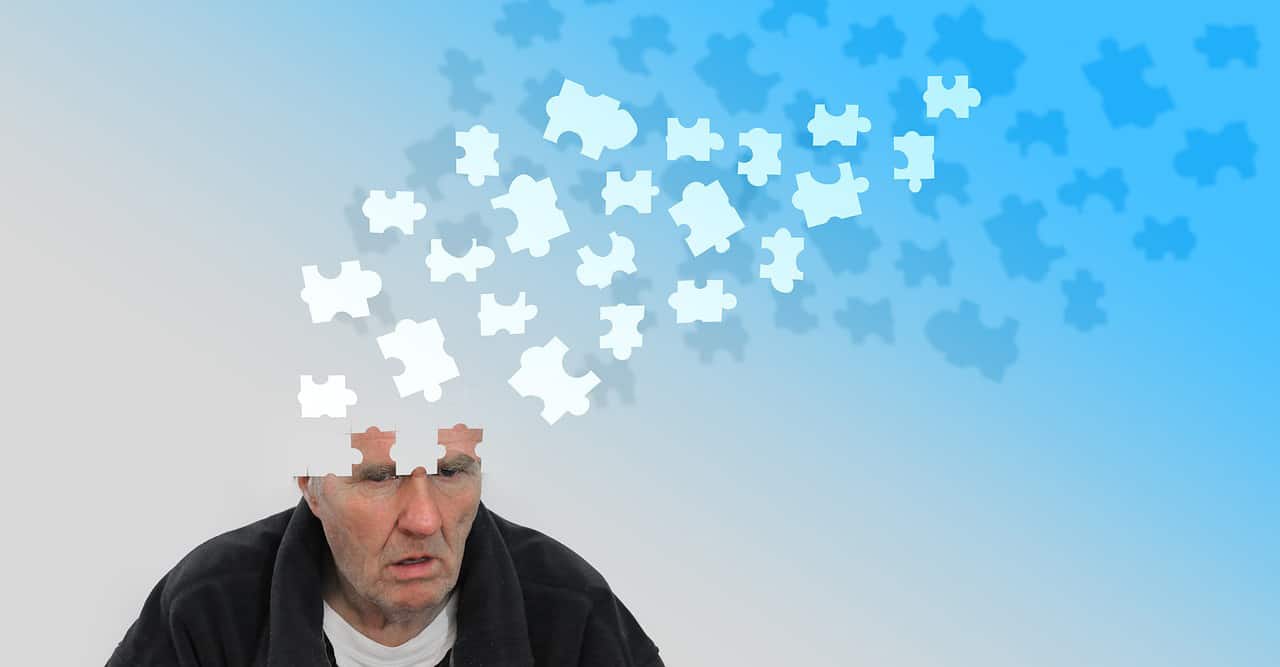
Music can have a profound effect on people with memory issues. Play music that they love and are familiar with for the most soothing results.
Even though my mother-in-law did not have Alzheimer’s disease, she did have a brain tumor. A few days before she died, she went into a very restless coma. I suggested that we play classical music for her. However, it didn’t help her. I asked my husband what kind of music she liked. His response: marching music. So, that’s what we played.
Almost instantly she calmed down and a serene look came over her. She left this life listening to the music she loved best.
Music can and does make a difference in our lives. If you have a loved one suffering from Alzheimer’s disease–try music–it just may make a HUGE difference in their lives.
Do you have a loved one with Alzheimer’s disease? Have they been positively affected by music? Please share your comments in the section below.
Want to remember this post? Post, “Music and Alzheimer’s Disease, 5 Awesome Ways Music Helps” to your favorite Pinterest board!

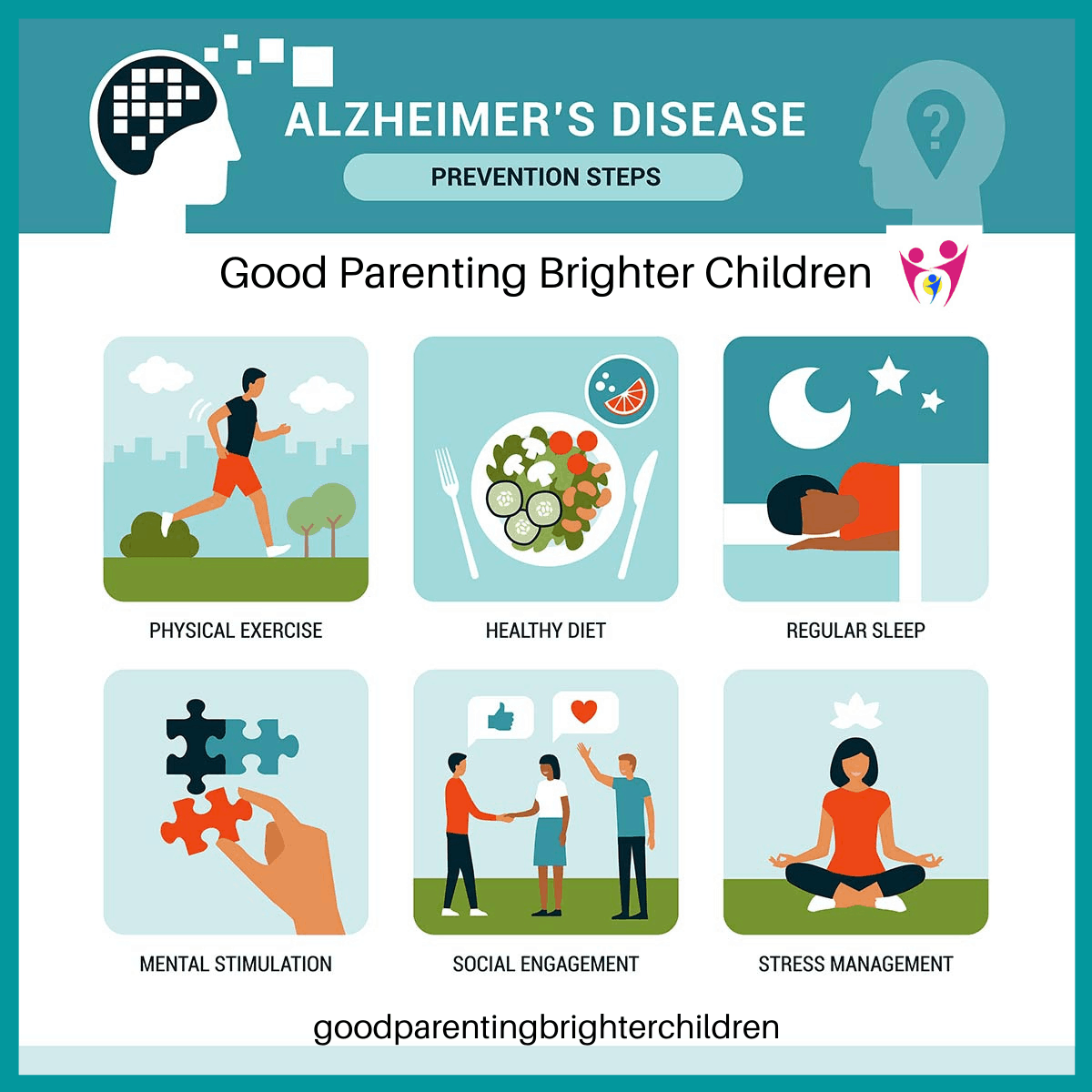
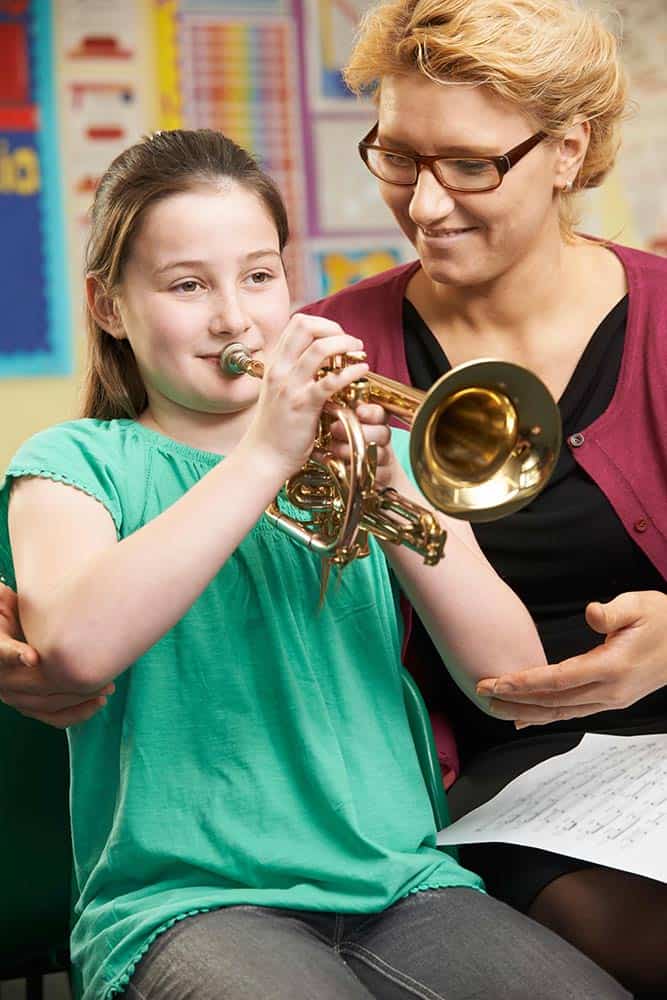
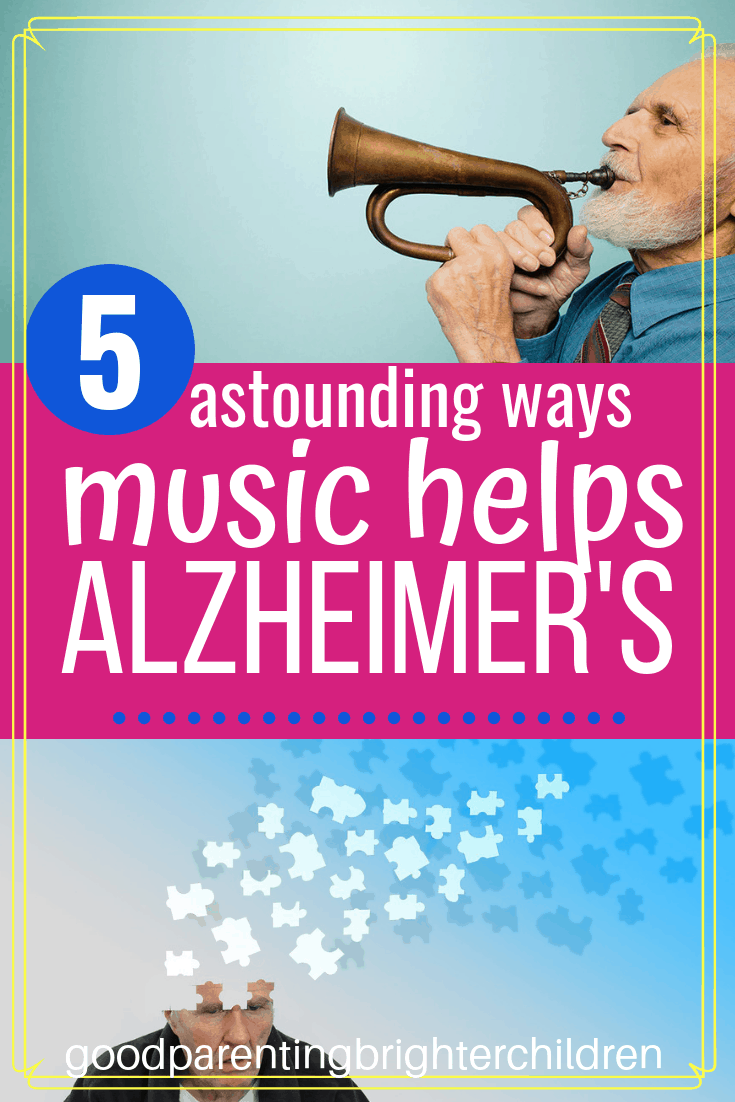
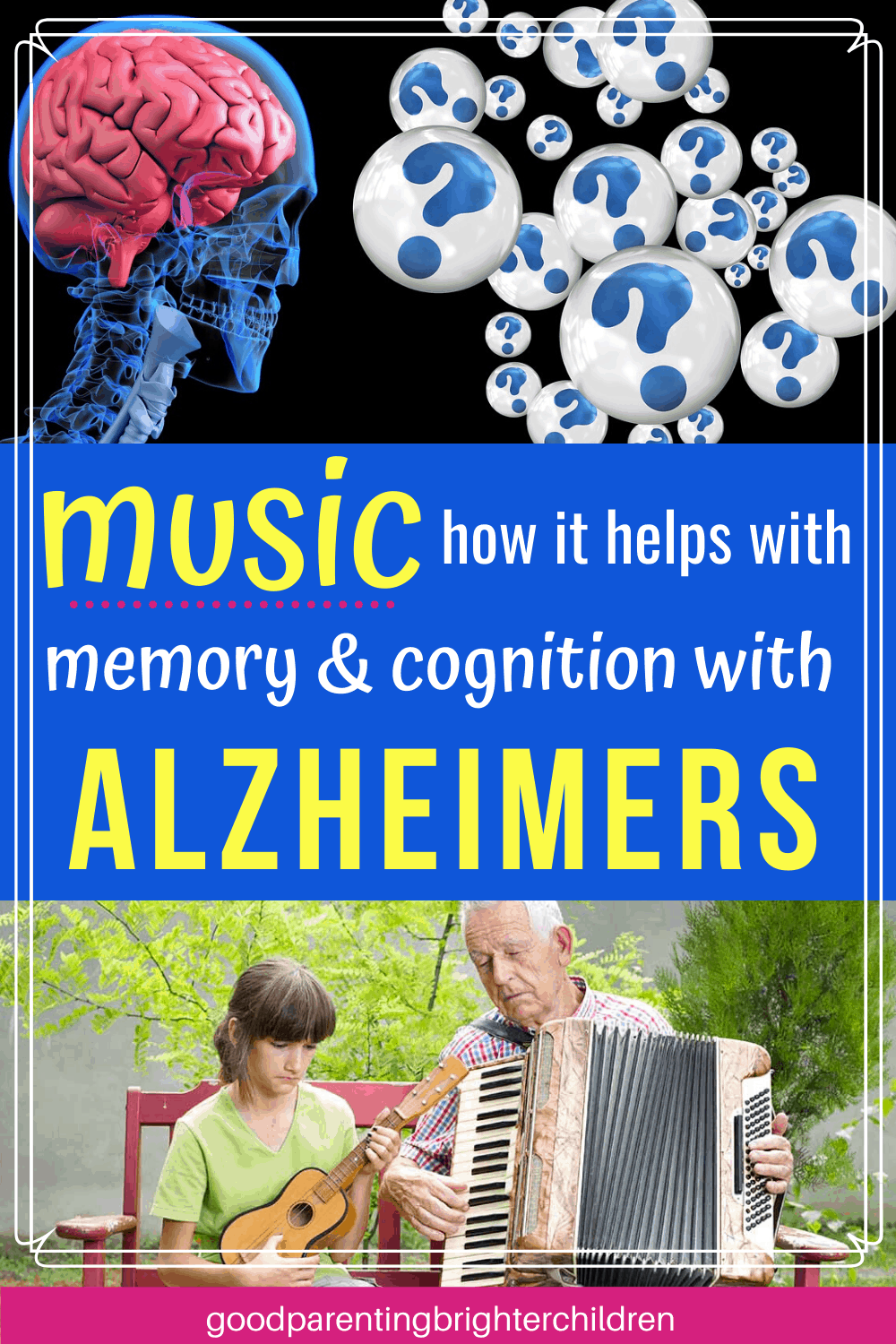


This disease truly scares me. Like you said in your newsletter, it’s so frightening to think that the one thing we hold dear, our memories, can fade away without a trace. Again I also agree with your newsletter when you said that music is truly amazing. It’s incredible that one simple thing like music can have so many positive benefits to us as humans. Before I became a subscriber and follower of your blog, I was a lover of music because it made me happy, comforted me in tough times, inspired me, etc. Now I am a lover of music for so much more! And I have you to thank you for that, Sharlene.
Thank you Tiffany! Before I knew all the effects of music on the brain–like you–I just loved music because of how it made me feel. Since studying its brain-building powers–I’m amazed at the far-reaching benefits of music. I’ve known people with Alzheimer’s and it really is amazing how they light up and positively react to music. It’s as though a light goes on inside their brains and they are able to recall things–even if only for a short time. If anything–it makes me motivated to practice the piano daily!